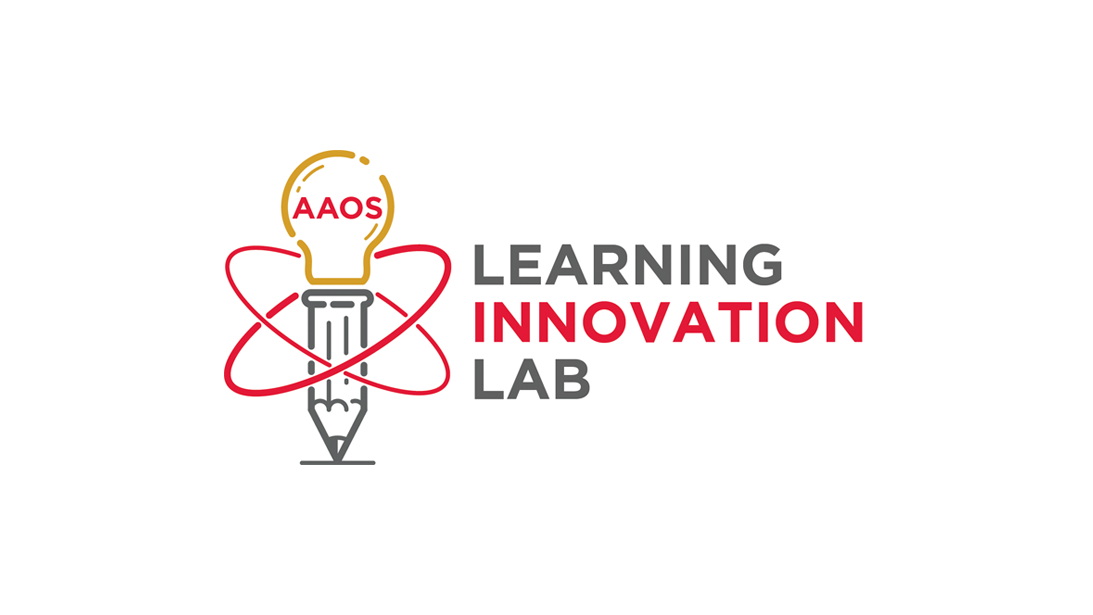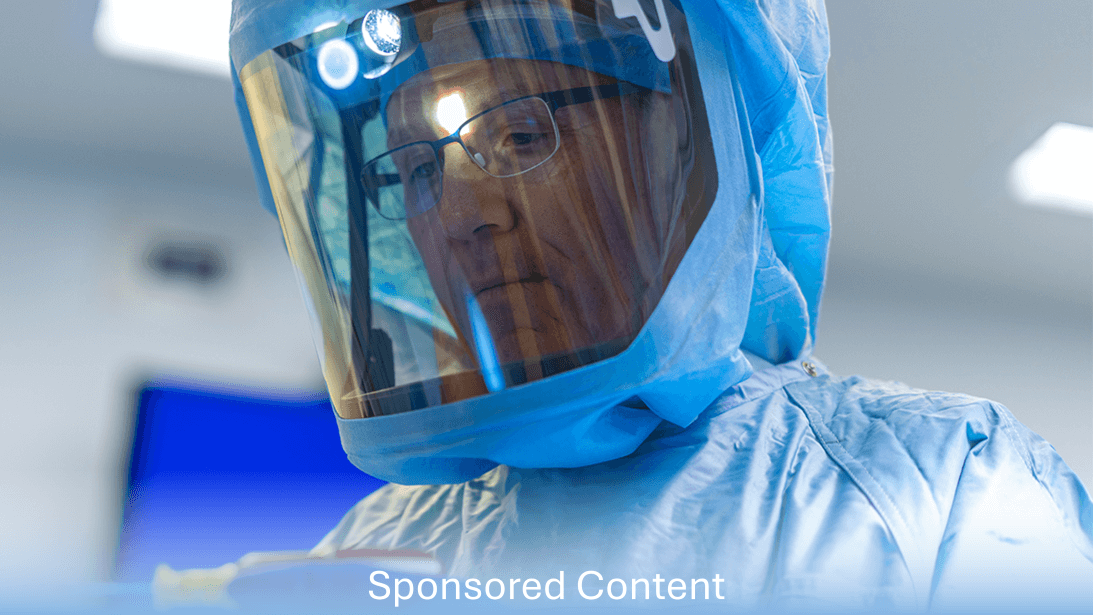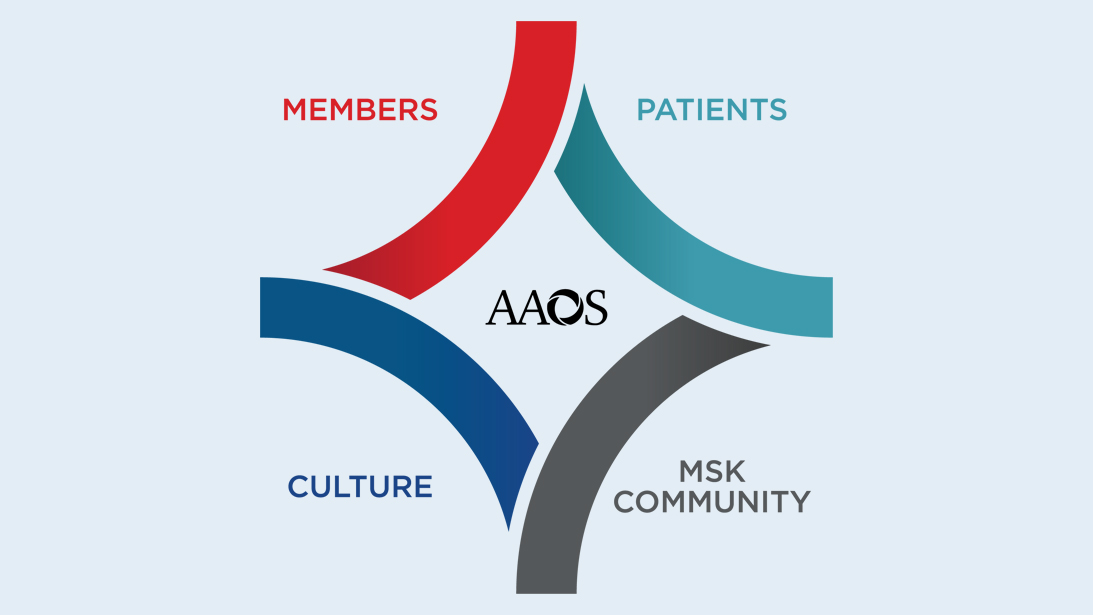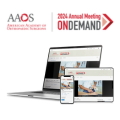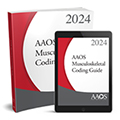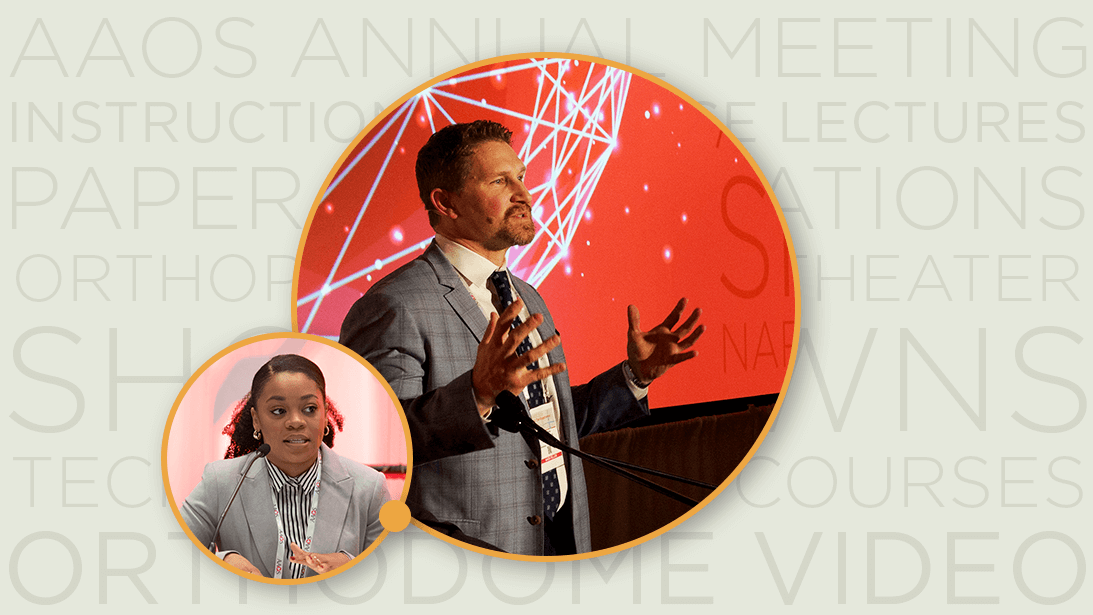
2025 Call for Abstracts Now Open
Experience the AAOS 2025 Annual Meeting, March 10-14 in San Diego, from the podium. Applications and abstracts are now being accepted. The first deadline is May 1.
Quick Access
What's New
-
All your benefits in one app! Download the FREE AAOS Membership App today.
-
Announcing the BOS Research Support Fund Award recipients. Learn more about the recipients and their research.
-
AAOS Item Writer Spotlight celebrates the contributions of Mark Schultzel, MD, MBA, FAAOS, FAOA.
-
Learn why it’s easier now to improve the quality of patient care with Registry next-generation dashboards.
-
Don't wait! Applications close April 12 for the AJRR Research Fellowship Position. Apply through the CAP.
-
AAOS IDEA Grant Program inspires diversity, equity and access across the field of orthopaedics. Apply by June 17!
Journals & News
-
JAAOS - April 1, 2024: Tranexamic Acid and Holding VTE Prophylaxis Morning of Surgery Do Not Decrease Transfusion Requirements in Patients Undergoing AIA for AOR and IF
-
JAAOS - April 15, 2024: Workplace Violence in Orthopaedic Surgery: A Survey of Academy of Orthopaedic Surgeons Membership
-
AAOS Now – March 2024: Valuing Balance: When Combatting Burnout, Surgeons Must Consider What Really Matters
Shop the AAOS Store
Corporate Partners
The American Academy of Orthopaedic Surgeons gratefully acknowledges the following companies for their financial support of AAOS programs and projects throughout 2023 (in alphabetical order). Learn more about partnering with AAOS.
